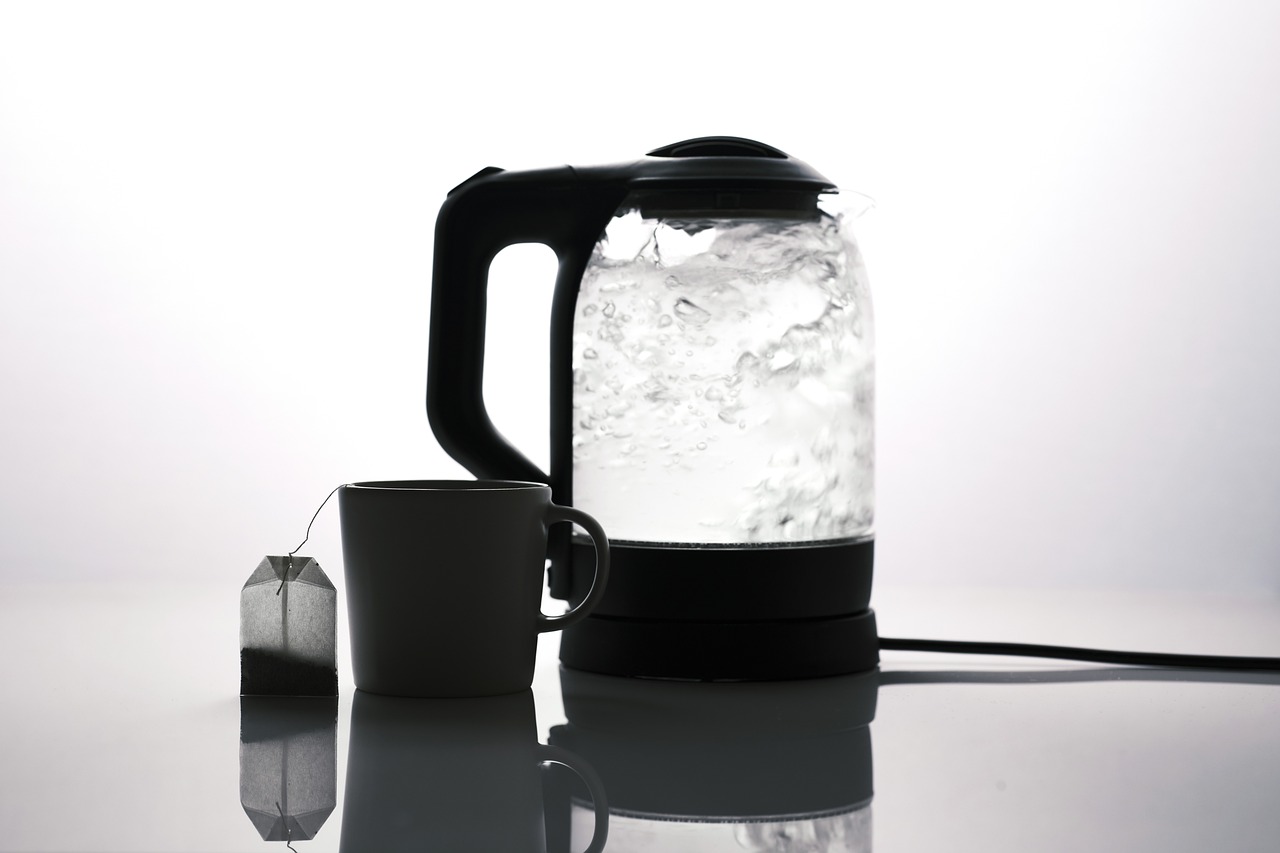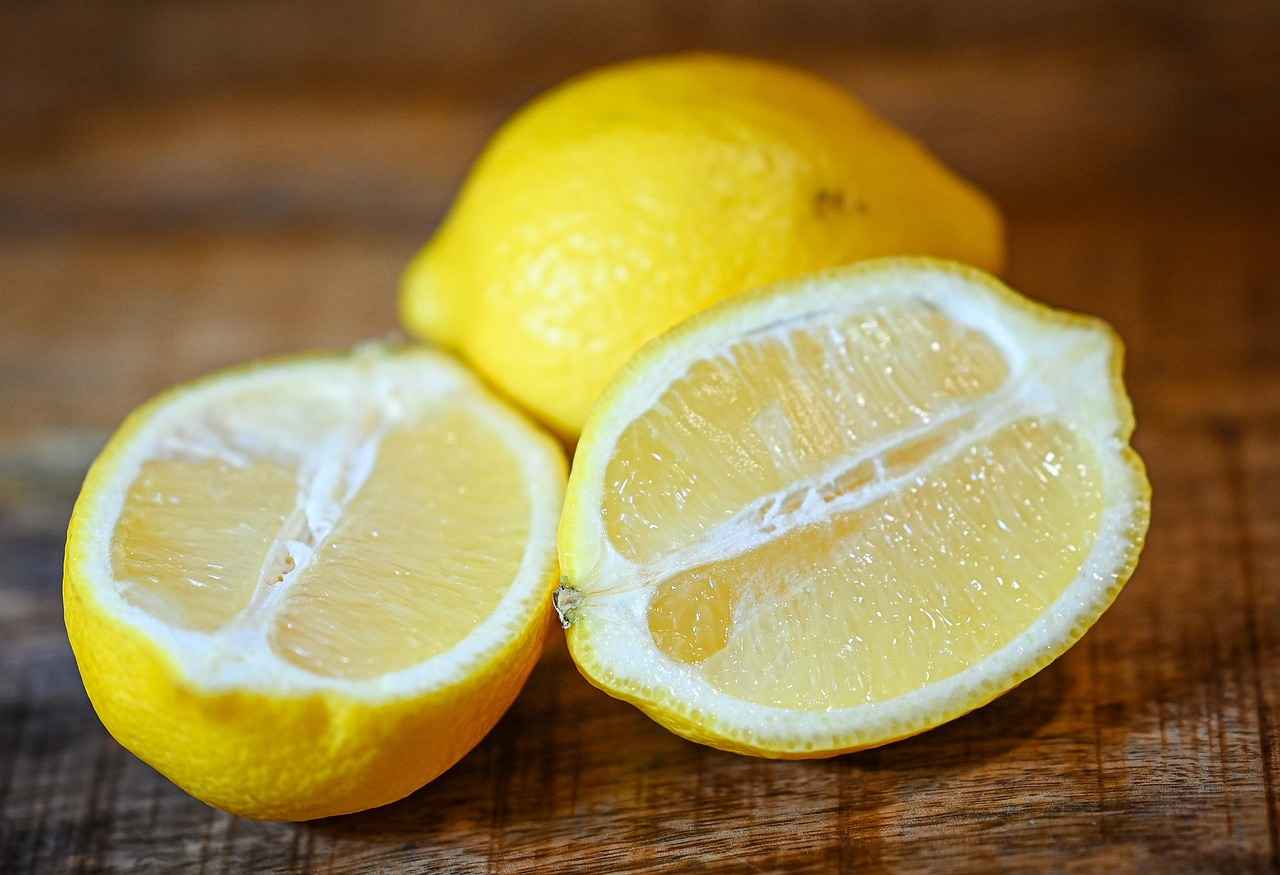This article explores the concept of a 3-day water fast, examining its potential health benefits, risks, and practical considerations for those contemplating this fasting method.
What is a 3-Day Water Fast?
A 3-day water fast involves abstaining from all food and caloric beverages, consuming only water. This fasting method is typically undertaken for various reasons, including health improvement, detoxification, or spiritual purposes. During this period, the body begins to adapt to the lack of food intake, entering a state of ketosis where it starts to burn fat for energy.
Potential Health Benefits of Water Fasting
- Weight Loss and Fat Burning: One of the primary reasons individuals undertake a water fast is weight loss. By significantly reducing caloric intake, the body begins to utilize stored fat for energy, leading to weight reduction.
- Autophagy: The Body’s Cleanup Process: Autophagy is a cellular process that removes damaged components, promoting cellular repair and regeneration. Fasting may stimulate this process, contributing to improved health and longevity.
- Improved Metabolic Health: Water fasting may enhance insulin sensitivity, leading to better blood sugar control. This can be particularly beneficial for individuals at risk of type 2 diabetes.
Is a 3-Day Water Fast Safe?
Safety is a critical consideration when fasting. While many can safely engage in a 3-day water fast, it is essential to evaluate individual health conditions. Pregnant women, individuals with eating disorders, or those with chronic health issues should avoid fasting unless supervised by a healthcare professional.
Common Side Effects of Water Fasting
While many experience minimal side effects, some may encounter:
- Headaches
- Fatigue
- Dizziness
These symptoms often arise from withdrawal from caffeine or sugar, dehydration, or a lack of essential nutrients.
Preparing for a 3-Day Water Fast
Preparation can enhance the fasting experience. Here are some practical tips:
- Gradual Reduction of Food Intake: Gradually tapering your diet a few days before the fast can ease the transition. Start by reducing processed foods and sugars.
- Hydration Strategies During the Fast: Staying hydrated is crucial. Aim to drink plenty of water, and consider electrolyte supplements to maintain balance.
Breaking the Fast: What to Eat
How you break a fast can significantly impact your health. After a 3-day water fast, it’s essential to reintroduce food slowly to avoid digestive issues.
- Foods to Avoid After Fasting: Heavy and rich foods, such as fried items or dairy, can be harsh on the digestive system. Avoid these to ensure a smooth transition.
- Recommended Foods to Reintroduce: Start with light foods like broths, fruits, and easily digestible vegetables. Gradually incorporate whole grains and proteins.
In conclusion, a 3-day water fast can offer various health benefits, but it is essential to approach it with caution and proper preparation. Always consult a healthcare provider before undertaking any fasting regimen, particularly if you have underlying health conditions.

What is a 3-Day Water Fast?
A 3-day water fast is a method of fasting that entails abstaining from all food and caloric beverages, allowing only the consumption of water. This approach to fasting is gaining popularity among individuals seeking to improve their health and well-being. The essence of a 3-day water fast is to provide the body with a break from digestion, enabling it to focus on healing and detoxification.
During this fasting period, the body enters a state of ketosis, where it starts to utilize stored fat for energy due to the absence of food intake. This metabolic shift can lead to various physical and mental benefits, making the 3-day water fast an intriguing option for many. However, it is essential to understand the principles and expectations associated with this fasting duration.
- Duration: The fast lasts for three consecutive days, during which only water is consumed.
- Hydration: Staying hydrated is crucial; individuals are encouraged to drink plenty of water throughout the fast.
- Physical Changes: As the body adapts to fasting, it may undergo several physiological changes, including decreased insulin levels and increased growth hormone secretion.
While embarking on a 3-day water fast, individuals may experience a range of sensations. Initially, hunger pangs are common, but they typically subside after the first day as the body adjusts. Many report enhanced mental clarity and focus during the latter stages of the fast, attributed to the release of ketones, which serve as an alternative energy source for the brain.
It’s important to note that a 3-day water fast is not suitable for everyone. Individuals with certain medical conditions, such as diabetes or eating disorders, should consult with a healthcare professional before attempting this fasting method. Additionally, those who are pregnant or breastfeeding should avoid water fasting due to the potential risks involved.
In summary, a 3-day water fast can be a powerful tool for those looking to reset their bodies and minds. However, proper preparation and understanding of the process are essential to ensure a safe and beneficial experience.

Potential Health Benefits of Water Fasting
Water fasting has gained popularity as a method for detoxification and weight management. This practice involves consuming only water for a set period, typically lasting from 24 hours to several days. Among the various durations, a 3-day water fast is often cited for its potential health benefits. This section explores the most commonly referenced advantages associated with this fasting method, providing insights backed by scientific research.
- Improved Metabolic Health: One of the primary benefits of a 3-day water fast is the potential improvement in metabolic health. Research suggests that fasting can enhance insulin sensitivity, which is crucial for regulating blood sugar levels. This improvement may help reduce the risk of type 2 diabetes and support overall metabolic function.
- Cellular Repair and Autophagy: During fasting, the body initiates a process known as autophagy, where it cleans up damaged cells and regenerates new ones. This natural detoxification process is believed to have significant implications for longevity and cellular health, potentially lowering the risk of various diseases.
- Weight Loss and Fat Loss: Many individuals undertake water fasting primarily for weight loss. By abstaining from caloric intake, the body begins to utilize stored fat for energy, leading to weight reduction. A 3-day fast can result in noticeable fat loss, making it an appealing option for those looking to shed pounds.
- Enhanced Mental Clarity: Some proponents of water fasting report increased mental clarity and focus. This phenomenon may be attributed to the reduction of insulin spikes that often occur after eating, leading to more stable energy levels and improved cognitive function during the fasting period.
- Reduced Inflammation: Fasting has been linked to decreased inflammation in the body. Chronic inflammation is associated with numerous health conditions, including heart disease and autoimmune disorders. By engaging in a 3-day water fast, individuals may experience a reduction in inflammatory markers, contributing to overall health improvement.
- Potential Longevity Benefits: Some studies suggest that intermittent fasting and prolonged fasting may promote longevity. The mechanisms behind this potential benefit are complex but may involve improvements in metabolic health, reduced oxidative stress, and enhanced cellular repair processes.
While the potential benefits of a 3-day water fast are compelling, it is essential to approach this practice with caution. Individuals should consider their personal health conditions and consult healthcare professionals before starting a fasting regimen. Moreover, the experience of fasting can vary widely among individuals, making it crucial to listen to one’s body and adjust accordingly.
In summary, a 3-day water fast may offer a range of health benefits, from improved metabolic health to enhanced mental clarity. As with any significant dietary change, proper preparation and awareness of individual health conditions are vital for a safe and effective fasting experience.
Weight Loss and Fat Burning
One of the most compelling reasons individuals embark on a 3-day water fast is for weight loss. This fasting method can be an effective way to promote fat burning and achieve significant weight reduction. During a water fast, the body undergoes several physiological changes that facilitate fat loss.
When food intake is restricted, the body enters a state called ketosis, where it begins to burn fat for fuel instead of carbohydrates. This metabolic shift can lead to a reduction in body fat percentage over time. Additionally, fasting encourages the body to utilize stored energy, which primarily comes from fat reserves.
- Insulin Sensitivity: Fasting can improve insulin sensitivity, which is crucial for weight management. Lower insulin levels promote fat breakdown and prevent fat storage.
- Hormonal Changes: Water fasting triggers the release of hormones like norepinephrine and growth hormone, which enhance fat burning and increase metabolic rate.
- Caloric Deficit: By abstaining from food for three days, individuals automatically create a caloric deficit, which is essential for weight loss.
Moreover, the psychological aspects of fasting can also contribute to weight loss. Many people report a heightened sense of awareness regarding their eating habits post-fast. This newfound consciousness can lead to healthier food choices and portion control, further supporting long-term weight management.
It is important to note that while a 3-day water fast can accelerate weight loss, it is not a sustainable long-term solution. Instead, it can serve as a kickstart for those looking to adopt healthier lifestyle changes. After completing the fast, individuals are often motivated to maintain a balanced diet and regular exercise routine, which can lead to lasting results.
However, fasting is not suitable for everyone. Individuals with certain medical conditions, such as diabetes or eating disorders, should consult a healthcare professional before attempting a water fast. Additionally, it is crucial to listen to your body during the fasting period and seek medical advice if any adverse symptoms arise.
Overall, the potential for weight loss and fat burning during a 3-day water fast is significant, but it should be approached with caution and preparation. Understanding the mechanics of fasting can empower individuals to make informed decisions about their health and wellness journey.
Autophagy: The Body’s Cleanup Process
Autophagy is a vital cellular process that plays a significant role in maintaining cellular health. It involves the degradation and recycling of damaged or dysfunctional cellular components, allowing cells to rejuvenate and function optimally. This mechanism is crucial for cellular homeostasis and has garnered attention in recent years, especially in relation to fasting.
Fasting, particularly intermittent fasting and prolonged fasting like a 3-day water fast, has been shown to stimulate autophagy. During fasting, the body shifts its energy source from glucose to fat stores, which triggers various metabolic processes, including autophagy. As nutrient availability decreases, cells initiate autophagy to eliminate damaged proteins and organelles, thereby enhancing their overall function.
The implications of autophagy extend beyond cellular repair; it is also linked to several health benefits. Research suggests that autophagy may contribute to longevity by reducing the risk of age-related diseases such as neurodegeneration, cancer, and metabolic disorders. By clearing out damaged components, autophagy helps maintain cellular integrity, which can lead to improved health outcomes.
Moreover, the stimulation of autophagy through fasting can enhance the body’s resilience against stressors. It equips cells with the ability to cope with various challenges, including oxidative stress and inflammation. This adaptive response is particularly valuable in our modern world, where exposure to environmental toxins and unhealthy diets is prevalent.
To understand the connection between fasting and autophagy, it is essential to consider the different types of fasting. Intermittent fasting, where individuals alternate between periods of eating and fasting, can activate autophagy during the fasting window. However, prolonged fasting, such as a 3-day water fast, may induce a more pronounced autophagic response due to extended nutrient deprivation.
While the health benefits of autophagy are promising, it is important to approach fasting with caution. Not everyone may experience the same effects, and individual responses can vary based on factors such as age, health status, and lifestyle. Therefore, it is advisable to consult with a healthcare professional before embarking on a fasting regimen, especially for those with pre-existing health conditions.
In summary, autophagy is the body’s natural cleanup process that is significantly stimulated by fasting. This process not only aids in cellular repair but also offers potential benefits for health and longevity. As more research emerges, understanding the role of autophagy in fasting will continue to evolve, providing insights into how we can leverage this process for better health.

Is a 3-Day Water Fast Safe?
Safety is a fundamental aspect to consider when contemplating a 3-day water fast. While many individuals embark on this fasting journey with the hope of achieving various health benefits, it is crucial to understand the potential risks involved and identify who should avoid this practice.
During a 3-day water fast, participants abstain from all food and caloric beverages, consuming only water. This can lead to significant physiological changes in the body. For many, these changes can be beneficial; however, fasting is not without its risks.
Common Side Effects of Water Fasting
- Fatigue: As the body adjusts to a lack of calories, individuals may experience fatigue and low energy levels.
- Headaches: Dehydration or withdrawal from caffeine can lead to headaches during the fasting period.
- Dizziness: Some may feel lightheaded or dizzy, particularly if they are not adequately hydrated.
- Digestive Issues: Reintroducing food too quickly after fasting can cause digestive discomfort.
To manage these side effects, it is advisable to stay well-hydrated and listen to your body’s signals. If symptoms become severe, it may be necessary to break the fast earlier than planned.
Who Should Avoid Water Fasting?
While many people can safely undertake a 3-day water fast, certain groups should refrain from this practice:
- Pregnant or Nursing Women: Fasting can deprive both the mother and baby of essential nutrients.
- Individuals with Eating Disorders: Fasting may exacerbate unhealthy eating patterns.
- Those with Chronic Health Conditions: People with diabetes, heart disease, or kidney issues should consult a healthcare professional before fasting.
- Medications: Individuals on certain medications may experience adverse effects without food intake.
Consulting a healthcare provider before starting a 3-day water fast is essential for anyone with pre-existing health conditions or concerns. They can provide personalized advice and determine if fasting is a safe option.
Conclusion
In summary, a 3-day water fast can be safe for many individuals, but it is not suitable for everyone. Understanding the potential risks and recognizing who should avoid fasting is crucial for making an informed decision. Always prioritize your health and well-being, and seek professional guidance if unsure.
Common Side Effects of Water Fasting
When considering a 3-day water fast, it is essential to be aware of the potential side effects that may arise during this period of abstaining from food. While many individuals can safely undergo this fasting method, some may experience challenges that require attention and management. Below, we explore the most common side effects associated with a 3-day water fast, along with effective strategies to cope with them.
- Hunger Pangs: One of the most immediate effects of fasting is the sensation of hunger. As your body adapts to the lack of food, you may experience intense cravings. To manage this, consider staying busy and drinking plenty of water, which can help mitigate feelings of hunger.
- Fatigue and Weakness: During a water fast, your energy levels may drop, leading to feelings of fatigue or weakness. It is advisable to listen to your body and avoid strenuous activities. Gentle stretching or light walking can keep your energy up without overexerting yourself.
- Headaches: Some individuals may experience headaches, often attributed to withdrawal from caffeine or dehydration. To alleviate this, ensure you are drinking enough water and consider gradually reducing caffeine intake before starting the fast.
- Dizziness or Lightheadedness: As your body adjusts to fasting, you might feel dizzy or lightheaded, particularly when standing up quickly. To prevent this, rise slowly from sitting or lying positions and maintain hydration throughout the fast.
- Digestive Changes: A 3-day water fast can lead to changes in bowel movements. Some may experience constipation, while others might have an upset stomach. Staying hydrated is crucial, and gentle herbal teas can aid digestion.
- Mood Swings: The psychological effects of fasting can lead to irritability or mood swings. Engaging in mindfulness practices such as meditation or deep breathing exercises can help stabilize your emotional state.
Understanding these potential side effects is crucial for anyone considering a 3-day water fast. By preparing adequately and employing strategies to manage these effects, individuals can navigate their fasting experience more comfortably. Always consult with a healthcare professional before embarking on any fasting regimen, especially if you have pre-existing health conditions or concerns.
In summary, while a 3-day water fast can offer various health benefits, it is vital to approach it with caution and awareness of the potential side effects. With proper management and preparation, you can enhance your fasting experience and achieve your wellness goals.
Who Should Avoid Water Fasting?
Fasting, particularly a 3-day water fast, has gained popularity for its potential health benefits. However, it is crucial to recognize that not everyone is suited for fasting. Certain individuals should exercise caution or completely avoid this practice due to specific health concerns. This section outlines the groups of people who should refrain from attempting a 3-day water fast.
- Pregnant or Breastfeeding Women: Women who are pregnant or breastfeeding have increased nutritional needs. Fasting during this critical time can deprive both the mother and child of essential nutrients, potentially leading to adverse health outcomes.
- Individuals with Eating Disorders: Those with a history of eating disorders, such as anorexia or bulimia, should avoid fasting. The restrictive nature of fasting can trigger unhealthy behaviors and exacerbate their condition.
- People with Chronic Illnesses: Individuals with chronic health conditions, such as diabetes, heart disease, or kidney issues, should consult a healthcare professional before attempting a water fast. Fasting can lead to dangerous fluctuations in blood sugar levels and other complications.
- Older Adults: Aging individuals may have different nutritional requirements and health concerns. Fasting can lead to dehydration, nutrient deficiencies, and other health risks for older adults.
- Individuals on Certain Medications: Those taking medications that require food intake or affect metabolism should approach fasting with caution. It is essential to consult a healthcare provider to assess the risks involved.
- People with a Weak Immune System: Individuals with compromised immune systems, whether due to illness or medication, should avoid fasting. The stress fasting places on the body can further weaken their defenses.
- Those with Severe Anxiety or Stress: Fasting can be physically and mentally demanding. Individuals experiencing high levels of anxiety or stress may find that fasting exacerbates their symptoms.
In summary, while a 3-day water fast may offer benefits for some, it is essential to recognize the groups of individuals who should avoid this practice. If you belong to any of these categories, it is advisable to explore alternative health strategies that align better with your needs. Always consult with a healthcare professional before making significant changes to your dietary habits.

Preparing for a 3-Day Water Fast
Embarking on a 3-day water fast can be a transformative experience for both the body and mind. However, proper preparation is essential to maximize the benefits and minimize discomfort. This section provides practical tips to help you effectively prepare for a successful fasting journey.
Understanding Your Motivation
Before starting your fast, it’s important to clarify your reasons for fasting. Whether it’s for weight loss, detoxification, or spiritual reasons, having a clear motivation can strengthen your resolve during the fasting period.
Gradual Reduction of Food Intake
To ease your body into fasting, consider gradually reducing your food intake in the days leading up to the fast. This approach can help mitigate potential side effects such as headaches and fatigue. Here are some tips for tapering your diet:
- Day 1: Focus on whole foods, eliminating processed items.
- Day 2: Reduce portion sizes and cut out heavy meals.
- Day 3: Transition to light meals, such as soups or smoothies.
Hydration Strategies
Staying hydrated is crucial during a water fast. In the days leading up to the fast, increase your water intake to prepare your body. Aim for at least 2-3 liters of water daily. Consider incorporating:
- Herbal teas: Non-caffeinated options can help keep you hydrated.
- Electrolyte water: Maintaining electrolyte balance is important, especially if you feel fatigued.
Mental Preparation
Fasting is not just a physical challenge; it’s also a mental one. Prepare yourself mentally by practicing mindfulness or meditation. Visualize your fasting journey and how you will handle cravings or discomfort. Journaling your thoughts can also be beneficial.
Setting Realistic Expectations
Understand that the first day of fasting might be the most challenging. Prepare for potential side effects such as hunger pangs, irritability, or fatigue. Knowing these are normal can help you stay focused on your goals.
Creating a Support System
Inform friends or family about your fasting plans. Having a support system can provide encouragement and accountability. Consider joining online fasting communities where you can share experiences and tips with others who are fasting.
Plan for the End of the Fast
Finally, think ahead about how you will break your fast. Properly reintroducing food is crucial to avoid digestive issues. Plan to start with light meals, such as broths or smoothies, and gradually progress to solid foods over a few days.
By taking these preparatory steps, you can enhance your fasting experience, making it a more manageable and beneficial endeavor. Remember that each person’s journey is unique, so listen to your body and adjust your approach as needed.
Gradual Reduction of Food Intake
Transitioning into a fasting regimen, particularly a 3-day water fast, can be challenging for many individuals. To facilitate this process, a is highly recommended. This approach not only prepares your body physically but also helps ease the mental aspect of fasting. Below are several strategies that can assist you in tapering your diet effectively before embarking on your fasting journey.
- Start by Reducing Portion Sizes: Begin by decreasing the portion sizes of your meals. This gradual decrease can help your body adjust to consuming less food without feeling deprived. Aim to cut your portions by about 25% each week leading up to your fast.
- Eliminate Processed Foods: Gradually remove processed and high-sugar foods from your diet. These foods can lead to cravings and make it difficult to transition into fasting. Focus on whole foods such as fruits, vegetables, and lean proteins as you prepare.
- Incorporate More Liquids: Start replacing some of your meals with liquids. Smoothies, soups, and broths can provide essential nutrients while significantly reducing caloric intake. This transition helps your body adapt to a less solid food intake.
- Practice Mindful Eating: Pay attention to your hunger cues. Eating slowly and mindfully can help you recognize when you are full, preventing overeating. This practice can also help you become more in tune with your body’s needs.
- Gradually Increase Intermittent Fasting: If you are not accustomed to fasting, consider incorporating intermittent fasting into your routine. Start with a 12-hour fast (e.g., 7 PM to 7 AM) and gradually extend it until you feel comfortable with longer fasting periods.
As you implement these strategies, it’s crucial to listen to your body. If you feel excessively hungry or fatigued, don’t hesitate to adjust your plan. The goal is to prepare your body for the upcoming fast without causing undue stress.
Additionally, consider keeping a journal to track your progress and feelings throughout this tapering process. Documenting your journey can provide valuable insights and help you stay motivated.
In summary, a gradual reduction of food intake is an effective method for easing into a 3-day water fast. By employing these strategies, you can enhance your fasting experience, making it more manageable and beneficial for your overall health.
Hydration Strategies During the Fast
Staying properly hydrated during a water fast is not just important; it is essential for maintaining health and well-being throughout the fasting period. A 3-day water fast can be challenging, and inadequate hydration can lead to fatigue, headaches, and other unpleasant side effects. This section will explore various hydration strategies to ensure you stay adequately hydrated during your fasting journey.
Water is the only beverage consumed during a water fast, making it crucial to maximize your intake. Here are some effective hydration practices:
- Pre-Fast Hydration: Before starting your fast, gradually increase your water intake. Aim to drink at least 2-3 liters of water daily in the days leading up to your fast. This helps to prepare your body for the upcoming period without food.
- Monitor Water Intake: During the fast, aim to drink at least 2-3 liters of water each day. Keep a water bottle handy to remind yourself to drink regularly. A good rule of thumb is to drink a glass of water every hour.
- Electrolyte Balance: While a strict water fast does not include any food or caloric beverages, some individuals choose to add a pinch of sea salt or a few drops of lemon juice to their water. This can help maintain electrolyte levels, which is vital for preventing dehydration.
- Listen to Your Body: Pay attention to your body’s signals. If you feel thirsty, do not ignore it. Additionally, if you experience symptoms such as dizziness, dry mouth, or fatigue, increase your water intake immediately.
- Temperature Considerations: Drink water at a comfortable temperature. Some people find that warm or room-temperature water is easier to consume in larger quantities than cold water.
- Hydration Reminders: Set reminders on your phone or use an app to track your water intake. This can help you stay consistent and ensure you are drinking enough throughout the day.
Staying hydrated can also help mitigate some common side effects of fasting, such as headaches and fatigue. Additionally, adequate hydration supports your body’s detoxification processes, which can be enhanced during a fast.
In summary, effective hydration strategies are vital during a 3-day water fast. By planning ahead, monitoring your intake, and listening to your body’s needs, you can ensure a more comfortable and successful fasting experience. Remember, hydration is not just about drinking water; it’s about understanding your body and responding to its needs.

Breaking the Fast: What to Eat
Breaking a fast is a crucial phase that can greatly influence your overall health and well-being. When you have completed a 3-day water fast, it is essential to reintroduce food into your diet carefully to avoid any potential digestive issues. This section provides insights into the best practices for breaking your fast and outlines the types of foods you should consider consuming.
After an extended period without food, your digestive system may be sensitive. Reintroducing food too quickly or choosing the wrong types of food can lead to discomfort, bloating, or other gastrointestinal issues. Therefore, it is crucial to approach this phase with caution.
When breaking your fast, opt for easily digestible foods that will allow your body to adjust gradually. Here are some excellent options:
- Bone Broth: Rich in nutrients and gentle on the stomach, bone broth is an excellent way to start.
- Vegetable Broth: A light vegetable broth can help rehydrate and provide essential vitamins.
- Steamed Vegetables: Soft, non-starchy vegetables like zucchini or spinach are easy to digest.
- Fruits: Start with mashed bananas or applesauce, which are gentle on the digestive system.
- Fermented Foods: Foods like yogurt or kefir can help restore gut bacteria, but introduce them slowly.
While it may be tempting to indulge after a fast, certain foods can be harsh on your system. Here are some items to steer clear of:
- Processed Foods: High in sugar and unhealthy fats, these can cause digestive distress.
- Heavy Proteins: Red meats and fatty fish can be difficult to digest initially.
- Dairy Products: Full-fat dairy can lead to bloating and discomfort, especially if you are lactose intolerant.
- Caffeinated Beverages: These can irritate your stomach and lead to dehydration.
Once you’ve successfully consumed liquids and soft foods for a day or two, you can gradually reintroduce solid foods. Start with small portions and pay close attention to how your body reacts. This method allows you to gauge your digestive system’s readiness for more complex foods.
Throughout this process, it’s crucial to listen to your body. If you experience any discomfort, consider returning to liquids or soft foods for a bit longer. Every individual’s digestive system is different, and what works for one person may not work for another.
Don’t forget to maintain hydration during this transition. Continue drinking water and consider herbal teas to soothe your digestive system. Staying hydrated will support your body as it adjusts back to regular eating patterns.
Breaking a fast is not merely about what you eat; it’s about how you approach the process. By following these guidelines, you can ensure a smoother transition back to regular eating and minimize the risk of digestive issues.
Foods to Avoid After Fasting
After completing a 3-day water fast, it is crucial to approach the reintroduction of food with care. The digestive system has been in a state of rest, and suddenly consuming heavy or rich foods can lead to discomfort and digestive issues. Here, we will explore the to ensure a smooth transition back to regular eating.
- Processed Foods: These often contain high levels of sugar, salt, and unhealthy fats, which can overwhelm the digestive system. Examples include chips, cookies, and frozen meals.
- Fried Foods: Foods that are deep-fried or cooked in excessive oil can be heavy on the stomach. Items like fried chicken or doughnuts should be avoided to prevent nausea.
- Dairy Products: Milk, cheese, and other dairy items can be difficult to digest after fasting. They may cause bloating, gas, or even diarrhea in some individuals.
- Red Meat: High in protein and fat, red meat can be taxing on the digestive system. Opting for lighter proteins like chicken or fish is recommended.
- Spicy Foods: Foods that are heavily spiced can irritate the stomach lining, leading to discomfort. It’s best to stick to bland foods initially.
- High-Fiber Foods: While fiber is essential for digestive health, consuming too much too soon can lead to cramping and bloating. Foods like beans, lentils, and whole grains should be reintroduced gradually.
To facilitate a more comfortable transition, it is advisable to start with small portions of easily digestible foods. Broths, smoothies, and steamed vegetables are excellent choices to begin with. Gradually increasing the complexity and richness of your meals over a few days can help your digestive system readjust.
Listening to your body’s signals is key during this reintroduction phase. If you experience discomfort, it may be wise to revert to simpler foods until your system stabilizes. Remember, the goal is to nourish your body gently and effectively after a period of fasting.
In summary, avoiding certain foods after a fast can significantly enhance your recovery experience. By steering clear of processed, fried, and heavy foods, you can help your digestive system ease back into its regular rhythm. Always prioritize hydration and opt for wholesome, nutrient-dense foods to support your body’s needs during this transition.
Recommended Foods to Reintroduce
Reintroducing food after a 3-day water fast is a crucial step that can significantly affect your recovery process. The body, having undergone a period of complete rest from food, needs gentle nourishment to ease back into regular eating. Choosing the right foods is essential to avoid digestive discomfort and to ensure that your body receives the nutrients it requires for optimal recovery.
Here are some recommended foods to consider when breaking your fast:
- Bone Broth: Rich in nutrients and easy on the stomach, bone broth provides essential minerals and collagen, aiding in gut healing.
- Vegetable Broth: A lighter alternative, vegetable broth can help rehydrate and nourish your body without overwhelming your digestive system.
- Fresh Juices: Diluted juices from fruits like apples or cucumbers can offer a gentle introduction of sugars and vitamins. Ensure they are freshly made and not overly sweet.
- Steamed Vegetables: Start with easily digestible options such as zucchini or spinach. These provide fiber and essential nutrients while being gentle on the stomach.
- Fermented Foods: Foods like yogurt or sauerkraut can help restore gut bacteria. Start with small amounts to see how your body reacts.
- Soft Fruits: Bananas or avocados are great choices. They are rich in potassium and healthy fats, respectively, and are easy to digest.
- Oatmeal or Porridge: A warm bowl of oatmeal can provide comfort and energy. Opt for plain oatmeal without added sugars or heavy toppings.
- Eggs: Soft-boiled or scrambled eggs are a good source of protein and can be easily digested when reintroduced gradually.
When reintroducing these foods, it is important to start with small portions to monitor how your body reacts. Gradually increase the quantity as you feel more comfortable. This cautious approach helps prevent any potential digestive distress.
Additionally, listen to your body. If you experience any discomfort, consider scaling back and opting for even lighter options for a few more days. Hydration remains essential, so continue to drink plenty of water alongside your meals.
In conclusion, the foods you choose to reintroduce after a 3-day water fast play a significant role in your recovery. By selecting gentle, nourishing options, you can support your body’s transition back to regular eating while minimizing any potential digestive issues. Remember to take your time and prioritize your well-being during this important phase.
Frequently Asked Questions
- What can I expect during a 3-day water fast?
During a 3-day water fast, you might experience a range of sensations from hunger pangs to increased clarity of mind. Initially, your body may protest, but as you progress, many find they feel lighter and more energetic. Think of it as a detox for both your body and mind!
- Is it safe for everyone to try a 3-day water fast?
No, a 3-day water fast isn’t for everyone. Individuals with certain health conditions, like diabetes or eating disorders, should avoid it. Always consult a healthcare professional before diving in. It’s like jumping into a pool; you want to check the water first!
- How should I prepare for a 3-day water fast?
Preparation is key! Gradually reduce your food intake a few days prior to fasting. Hydrate well and mentally gear up for the experience. It’s like getting ready for a marathon; you wouldn’t just show up without training!
- What foods should I avoid when breaking the fast?
After a 3-day fast, steer clear of heavy, greasy foods. Your digestive system will be sensitive, so think of it as reintroducing a gentle breeze instead of a hurricane. Opt for light, nutrient-dense foods to ease back into eating.
- Can I drink anything besides water during the fast?
Nope! The essence of a water fast is to consume only water. It’s like a digital detox for your body—no distractions, just pure hydration!












